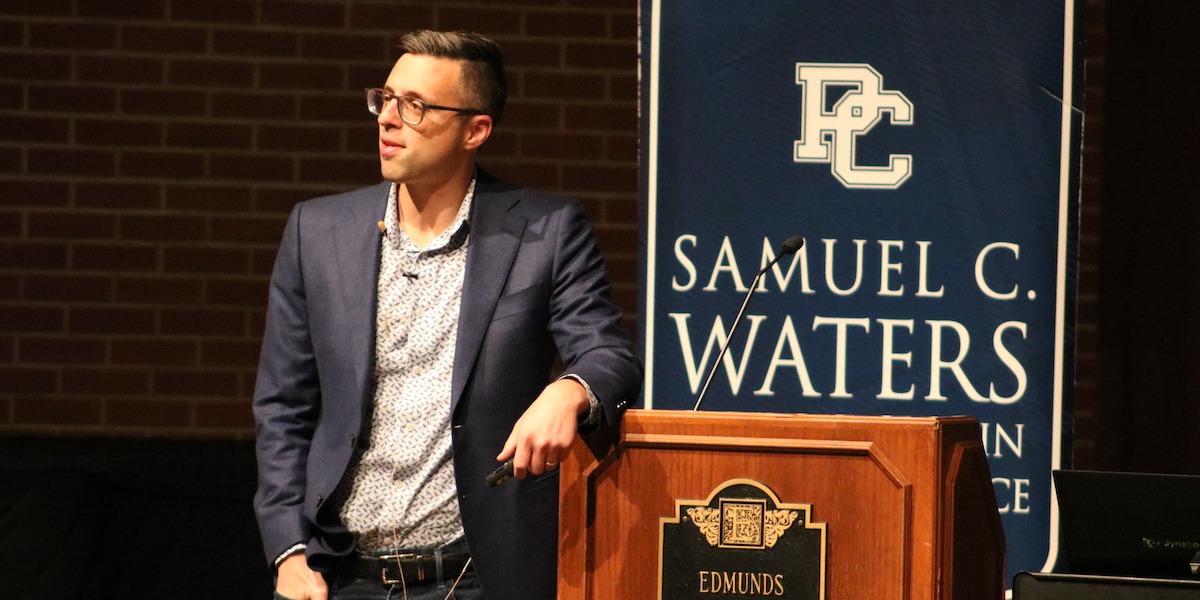Columnist, author, and podcaster Ezra Klein talks politics with PC

New York Times columnist, author, and podcaster Ezra Klein went straight at one of the two topics people avoid talking about with a frank discussion on American politics during a lecture this month at Presbyterian College.
This year’s Sam Waters Lecture Series speaker addressed, in particular, the current political landscape in the U.S. and why it is a problem.
Polarization itself is not the real problem, Klein said, and the real problem is that politics no longer delivers policy or governance.
“Division that drives more division and not resolution – that’s the key thing to understand,” he said.
Even during the turbulent 1960s and 1970s – a period of war, political assassination, and civil strife – lawmakers still looked for common ground, Klein said. There were differences of opinions between the two major political parties and differences within each caucus that allowed elected leaders to build coalitions and get things done.
Now, Klein said, political parties are more interested in winning and holding on to power than creating policies and allowing their constituents to decide if they like them. Policies are no longer at the forefront of U.S. elections; only winning is essential.
Klein said other countries’ political systems rely on coalitions. In the U.S., very little gets done even when one party has control over the legislative and executive branches of government.
“Congress’s approval rating is around 22 percent,” he said. Everybody is angry all the time. And because we’re a polarized country, no one wants to agree on anything unless there is public consensus and bipartisan support.”
But since bipartisanship puts lawmakers at risk of facing an opponent in their next primary election, they are reluctant to reach across the political aisle and find common ground.
Klein argued, however, that common ground on most policies happens over time – not initial debate. The Affordable Care Act, for example, was divisive at first and politically contentious. Now that it has been policy for a few years, most voters favor it, and neither party wants to see it struck down.
Klein proposed several government reforms, including the end of the filibuster, doing away with the Electoral College, and restructuring how seats are apportioned in the House and Senate. Ultimately, he said, the federal government should work so that the party with the most votes wins and has a viable opportunity to govern.
“Our political system should work the way we tell our children it works,” he said.
